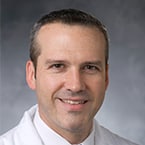AACR-Debbie’s Dream Foundation Innovation and Discovery Grant
The inaugural AACR-Debbie’s Dream Foundation Innovation and Discovery Grant seeks to encourage innovation and translation of ideas from basic research into new treatment options for gastric cancer.
2023 Grantees

Research
Gastric dysplasia is a key stage for malignant transformation to gastric cancer. While the role of metabolism is recognized in supporting the exponential growth and proliferation of cancer cells, it remains obscure which metabolic pathways regulate gastric carcinogenesis. Dr. Choi’s group identified a unique monounsaturated fatty acid (MUFA) which fuels dysplastic cell hyperproliferation and survival. Stearoyl-CoA desaturase 1 (SCD1), a catalytic enzyme in the synthesis of unsaturated fatty acids, is specifically upregulated in the transitioning area from metaplasia to dysplasia and strongly expressed in human gastric patient tissues with dysplasia and adenocarcinoma. They showed that SCD inhibition decreased cell growth and induced cell death in a mouse model. In this project, the group seeks to evaluate the potential of aberrant fatty acid metabolism as a novel druggable target for prevention or treatment of gastric cancer by assessing levels of MUFA metabolites in human tissues and determine the efficacy of SCD1-targeting drugs.
Biography
Dr. Choi is an associate professor at Vanderbilt University Medical Center. She has broad research experiences in stem cell biology and gastric cancer biology. Her group focuses on defining functional roles of oncogenes and stem cell plasticity in gastric pre-cancer, which can lead to dysplasia evolution to adenocarcinoma and is a clear knowledge gap in the field. She is a group leader of a new NCI Program on the Origins of Gastroesophageal Cancers.
Acknowledgment of Support
“I’m truly honored to receive the 2023 AACR-Debbie’s Dream Foundation Innovation and Discovery Grant. This grant will allow me to conduct a high-risk project for a novel drug target as a prevention and early intervention strategy for gastric cancer and to obtain key data for future funding.”

Research
Despite the recent availability of checkpoint inhibitor immunotherapies, the majority of gastric cancer patients do not benefit from this treatment modality. Dr. Hanks’s Lab has identified the tumor-intrinsic NLRP3 inflammasome-HSP70 signaling axis as a driver of checkpoint inhibitor resistance in melanoma. Their recent clinical specimen studies suggest that NLRP3 amplification and enhanced NLRP3 activity levels correlate with anti-PD-1 resistance in advanced gastric cancer patients. They now propose to examine the role of the NLRP3-HSP70 signaling axis in regulating anti-tumor immunity in an orthotopic murine gastric cancer model. His team will examine the ability of pharmacologic inhibitors of both NLRP3 and HSP70 to overcome resistance to anti-PD-1 immunotherapy and determine whether NLRP3 genetic amplification can serve as a marker of response to this treatment strategy. This work aims to support a phase I clinical trial testing NLRP3 inhibitors in combination with anti-PD-1 immunotherapy in advanced gastric cancer patients.
Biography
Dr. Hanks completed his medical degree and doctoral degree in tumor immunology in the Medical Scientist Training Program at Baylor College of Medicine. He then completed his internal medicine residency and oncology fellowship training at Duke University. Dr. Hanks is currently an associate professor of medical oncology in the department of medicine and an assistant professor of pharmacology and cancer biology at Duke University and the Duke Cancer Institute. A medical oncologist, he also directs a basic/translational research lab focusing on developing novel strategies for overcoming immunotherapy resistance in patients with upper gastrointestinal and cutaneous malignancies.
Acknowledgement of Support
“It is truly an honor to be selected as a recipient of the 2023 AACR-Debbie’s Dream Foundation Innovation and Discovery Grant. This award provides critical support as we transition our cancer immunotherapy resistance and toxicity research program into the field of gastrointestinal oncology.”

Research
Cyclin E1 (CCNE1) amplifications are found in approximately 10% of stomach cancers and are associated with DNA replication stress, chromosomal instability, therapeutic resistance, and immune cell exclusion. Recent studies found that CCNE1-amplified tumors are selectively vulnerable to loss of Protein Kinase, Membrane Associated Tyrosine/Threonine 1 (PKMYT1), a member of the Wee1 G2 checkpoint kinase family that negatively regulates CDK1. PKMYT1 inhibition leads to unscheduled mitotic entry and DNA damage induction, which can trigger innate immune responses. Dr. Moy and colleagues will leverage CCNE1-amplified gastric cancer patient-derived organoids and syngeneic mouse models to investigate the activity and mechanism of combined PKMYT1 inhibition and immune checkpoint blockade. These studies aim to define a new biomarker and drug target for combination immunotherapy and targeted therapy with the potential to improve treatment options for patients with gastric cancer.
Biography
Dr. Moy received his medical degree and doctoral degree in immunology from the University of Pennsylvania. After his internal medicine residency at Weill Cornell, he completed medical oncology fellowship at Memorial Sloan Kettering Cancer Center, during which he also pursued postdoctoral research at The Rockefeller University studying cancer metastasis. He is currently an assistant professor and gastrointestinal medical oncologist at Columbia University Irving Medical Center. In addition to heading the gastric cancer clinical trial program, he leads laboratory-based translational studies focused on developing novel therapeutic strategies for gastric cancer.
Acknowledgement of Support
“I am extremely honored to be a recipient of the 2023 AACR-Debbie’s Dream Foundation Innovation and Discovery Grant. This award will allow my group to investigate a novel combination of targeted therapy and immunotherapy for gastric cancer, which we hope will eventually lead to new therapeutic options for patients.”